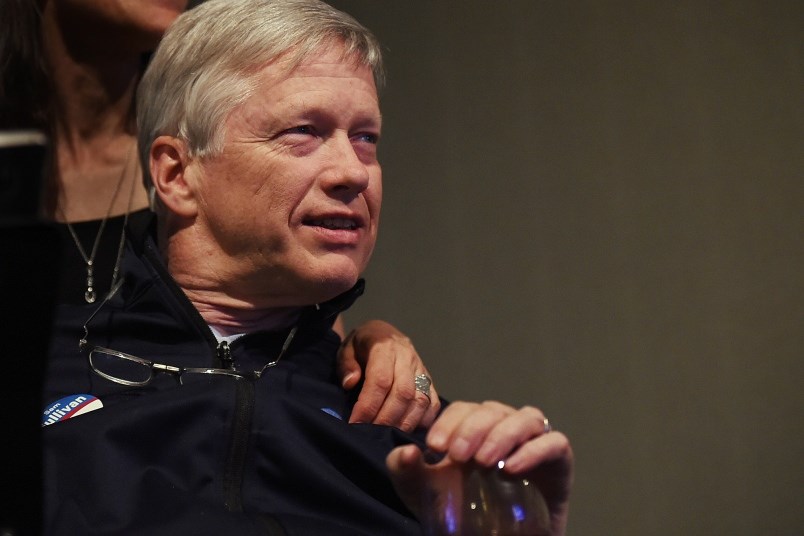тАЬThis is something IтАЩd like to see.тАЭ It was an innocent-sounding quote by former ┬щ╢╣┤л├╜╙│╗нMayor Sam Sullivan, now a B.C. government minister responsible for matters relating to local government.
After speaking with Sullivan on Monday, ┬щ╢╣┤л├╜╙│╗нCourier reporter Mike Howell broke the news that the B.C. LiberalsтАЩ proposed ban corporate and union donations , in addition to provincial election campaigns.
тАЬI canтАЩt say that will be in the throne speech, but itтАЩs certainly something that I personally would like to see. We have to go step by step, but I think that would be a very positive direction.тАЭ
It is clear Sullivan has been given the OK by the PremierтАЩs office to float this trial balloon before ThursdayтАЩs sitting of the B.C. Legislature. So what does it mean for B.C. voters?
On the same day B.C. Green Party leader Andrew Weaver sent a strong signal he was preparing to delay the B.C. LiberalsтАЩ expected death sentence as government тАФ if only for a short time тАФ to allow the ban of corporate and union donations to be passed into law.
тАЬAbsolutely we would [vote for the bill],тАЭ Weaver told Postmedia News. тАЬThat would be very exciting.тАЭ
The explanation for the GreensтАЩ zeal for banning big donors is simple тАФ it creates a fairer playing field when campaigning alongside the other guys. By squeezing the money sources for the NDP or B.C. Libs, B.C. Greens feel they have a better shot at electing more MLAs.
Parties with close ties to labour groups such as Vision ┬щ╢╣┤л├╜╙│╗нor the New Democrats have long called for banning union and corporate donations. However, it is well known in political circles that these parties have an advantage in that they can count on unions to supply paid campaign staff, or have them coordinate voter databases and advertising strategies that are difficult to quantify.
This is important because each party is obligated to limit campaign spending within a cap set by Elections BC.
Parties on the centre-right do not have a similar ace up their sleeve as their union-friendly opponents. This goes a long way to explain the reticence of the B.C. Liberals to reform election finance rules.
B.C. Liberal organizers thought, perhaps naively, that releasing weekly donor disclosures leading up to Election Day would assuage the anger over тАЬbig moneyтАЭ politics. Ultimately, it had little or no effect at all on public opinion.
Now that the B.C. Liberals are on-side in wanting to ban corporate and union donations, they have no choice but to include local government elections too. In 2014, Vision and the NPA spent a staggering $6 million combined to fund their campaigns.
Undoubtedly, Vancouver-based developers, business operators, and even union leaders, weary of being shaken down for tens or hundreds of thousands of dollars during each election cycle, are quietly cheering. The new rules could impact who takes power at city hall in 2018.
Ending corporate and union donations has unintended consequences the public should be wary of, however. It may lead to a growth in third party advertising and campaigning, not unlike the corrupting influence of тАЬSuper PACsтАЭ we see in the United States.
It is infinitely more difficult to track donations made to third parties, which will surely blossom as a consequence of the proposed election finance reforms.
There is already a preponderance of third party groups wishing to influence the outcomes of elections in B.C. and across Canada. The most egregious among them are organizations promoting тАЬstrategicтАЭ voting, and whose financial backers could be described as murky at best.
The funding behind many of these groups is from U.S. sources, funneled through Canadian charities and scrubbed of any evidence of the original source.
Though their grip on power in B.C. seems quite tenuous at the moment, the B.C. Liberals have an opportunity to set new rules that can limit the influence of third parties, and level the playing field for all parties.
Now letтАЩs see if VancouverтАЩs former mayor can help our municipal elections move in a тАЬpositive direction.тАЭ
@MikeKlassen



